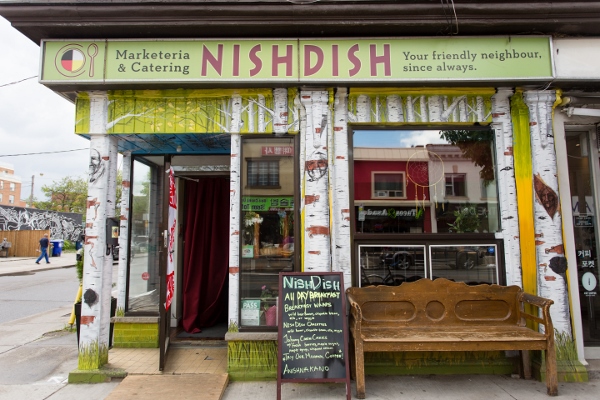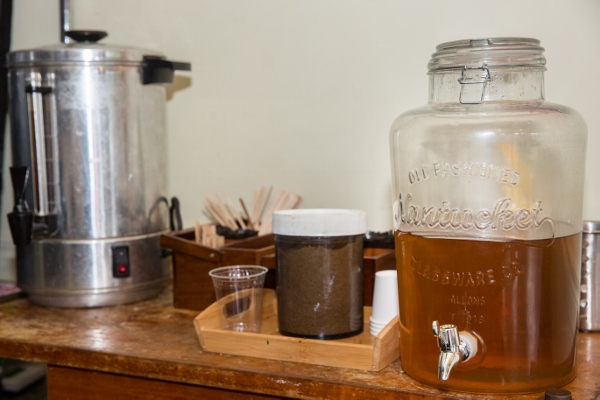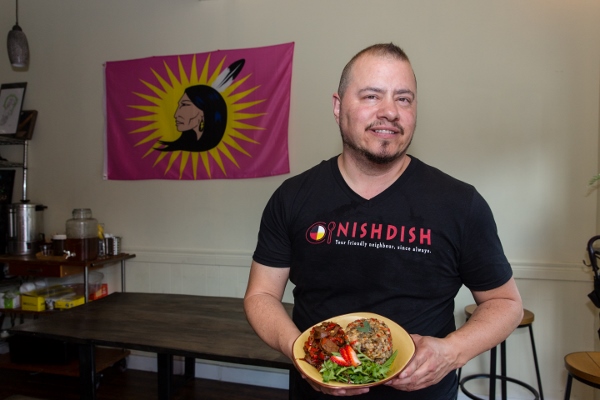Nish Dish: Find it, source it, bring it back
Nish Dish founder, Chef Johl Whiteduck Ringuette, always knew that the geographical history of the Anishnawbe people would be the guiding factor in finding the right location for his restaurant. After 12 years of running Nish Dish exclusively as a catering business, Ringuette, originally from North Bay, decided it was time to not only open a restaurant but also to realize his vision of establishing an Indigenous, socioeconomic, educational hub where the community could gather and share information, created on the lands his ancestors walked over 1,000 years ago.
“Our community needs a formalized district, which we’re calling Nish Town, short for Anishinaabe Town, with a Toronto Indigenous Business Association.”

Creating awareness around Garrison Creek and its relationship to the Anishnawbe people was always a goal, as well as creating a space and community with authentic First Nations food and artisan market.
“Find it, source it, and bring it back,” says Ringuette. This motto is the driving philosophy behind Nish Dish, but the motto brings with it real challenges, such as finding and keeping the food as it was for his ancestors. Ringuette uses his experience with corn as his prime example, explaining that today’s corn is typically a genetically modified crop. After a long search, he was able to procure
300-year-old seedlings for his ancestral corn, planted in a community garden with hopes for a fall harvest. It’s a large undertaking without any guarantees for success. “How do we find sustainable ways to grow that corn so we can bring it back to all the other communities?”
Along with growing the type of corn that the ancestral Anishnawbe people would have eaten, Ringuette is also growing plants to produce beans and squash. Corn, beans and squash are the three main agricultural crops, traditionally referred to as the Three Sisters. “As a first nation entrepreneur and being focused on the reclamation of Indigenous food, we’re sourcing from first nation communities: wild ginger from Cape Croker, coffee from Quebec, and Ojibway smoked maple syrup from a Sault Ste. Marie family that has been tapping trees for seven generations.”

Nish Dish also sells beaded crafts, soaps, jewellery and shoes created by Indigenous artisans. Nish Dish purchases everything directly, nothing on consignment. Ten per cent of all proceeds goes towards a fund for the next aboriginal entrepreneur. It’s all part of creating an Indigenous Business Community with Nish Dish as its hub.
“Nish Dish is only the beginning,” says Ringuette. “Now we’re going to create a district.”









